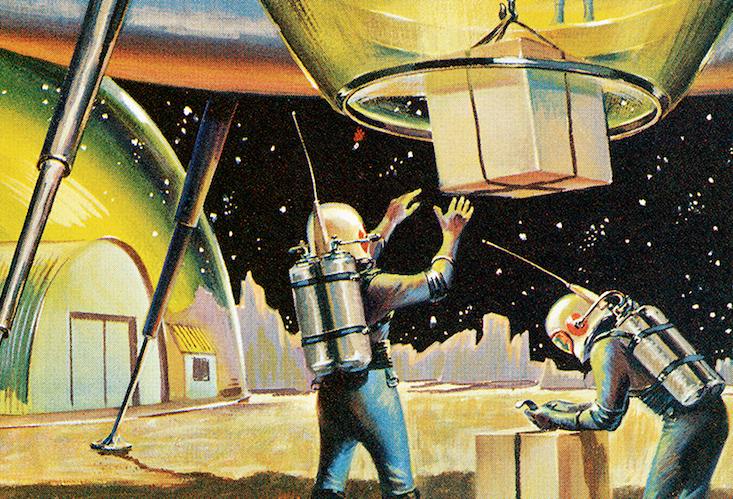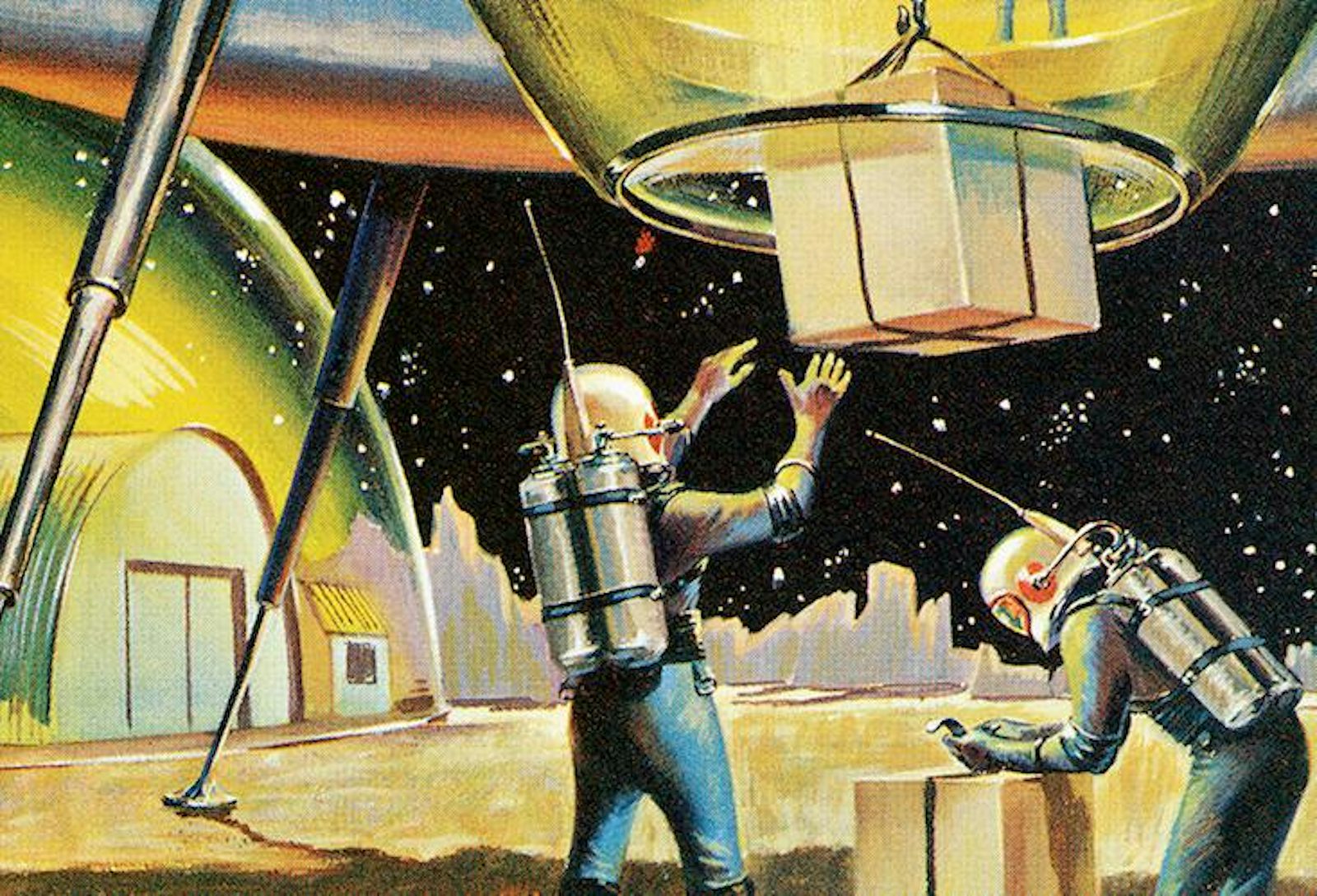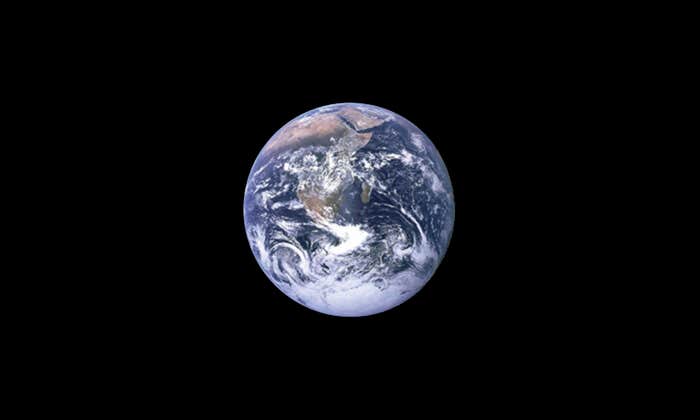
Ten years ago, I dropped out of my graduate program in electrical engineering. I was in computational electromagnetics, modeling how radio waves propagate through the ground. I liked it, but I didn’t love it. I was living a double life. By day, I was an engineer; by night, I was a do-gooder and community volunteer, helping the homeless support themselves by writing for a street magazine that they would sell. I couldn’t reconcile my passion for making the world a better place with my engineering work, so I quit.
The heart of the matter for me was that engineering is all about solving problems. I got caught up on which problems we should be solving, and these “should” questions can’t be answered with engineering. Society needs some other way of figuring out what problems engineers should work on, and for that matter what everyone should do with their lives. For me, it’s the idea of making the world a better place.
But why just the world? Humanity is already exploring outer space; give us a few billion more years of technological progress and we can probably colonize much of the universe. That would let us outlive our planet and accomplish much, much more. So, it is small-time to make just the world a better place. The real opportunity lies in making the universe a better place.
Right now, outside of Earth, the universe as we know it is full of vast empty spaces, fiery stars, and lifeless planets. It’s beautiful, but it’s as dead as a rock. I, for one, would not want to be a rock. Being a human is wonderful, but even being a monkey or a dog or a bird would be better than being a rock. There is more happiness and pleasure (and whatever else makes life worth living) in a single bird than there is in the whole known universe outside of Earth. That would no longer be the case if humanity colonizes outer space.
Unified tyranny would be difficult to maintain across the vast distances of outer space.
To get a sense of the possibilities, consider a Dyson swarm, which is a series of structures that a civilization could place around a star to collect its radiation. If humanity builds a Dyson swarm around the sun, we could get a billion times more energy than from Earth. That alone would enable a huge improvement, but then note that the Milky Way has a few hundred billion stars. A network of Dyson swarms could power a massive galactic civilization that utterly dwarfs anything we can achieve on Earth. However much good we may be able to do by making the world a better place is utterly dwarfed by making the universe a better place.
It is conceivable that humanity could go on to make the universe a worse place than it is in its current, lifeless state. This would occur if the space colonists’ lives were so bad that it would be better for them to not be alive in the first place. For example, perhaps a space colony would be an oppressive galactic tyranny. Or perhaps outer space would be so inhospitable that we could only eke out a meager, depressed existence. In this case, it would be better for humanity to remain on Earth, or even to destroy ourselves to put us out of our misery.
Fortunately, such depths of misery have been the exception, not the rule, on Earth. Even before the recent rise in living standards across the world, most people’s lives were plenty good enough to be preferable to death. Furthermore, technological advances can help smooth out the rough edges of space travel, and unified tyranny would be more difficult to maintain across the vast distances of outer space. Thus, from our present-day vantage point, space colonization seems worth a try. If it would work out, it opens up a universe of possibilities vastly exceeding anything we could do on Earth.
The final decision of whether or not to colonize space does not need to be made now. After all, we can’t wake up tomorrow and start building Dyson swarms. Future generations will have a clearer understanding of space colonization, making them better positioned to evaluate its merits.
Today, instead of preparing to colonize space, it’s more important that we simply keep human civilization intact. Climate change, nuclear war, and pandemics are a few of the global catastrophic risks that threaten the survival of human civilization. A global catastrophe would deny future generations the chance to colonize space. It could be the difference between the universe remaining the mostly lifeless place it is now or becoming home to a massive, fantastic civilization. When we work to reduce the risk of global catastrophe, we are doing good at a literally astronomic scale.
To be sure, we should still care about global catastrophe even if we don’t care about the whole universe—if instead we only care about the next few generations or so on Earth. So we could just skip the cosmic perspective. However, this perspective shows us just how overwhelmingly important a global catastrophe would be. Furthermore, the cosmic perspective can be inspiring. Catastrophes are dark and scary. We can take comfort in knowing that if we can get human civilization through its current stretch of turbulence, then a vast and beautiful future awaits. People like having a purpose and being part of something greater than themselves. What could be greater than the entire universe?
Humanity could be the universe’s only chance to become something better than its current, mostly lifeless state.
Global catastrophic risks may seem too big for us humble individuals to make a difference on, but that’s just not the case. Each of us can wake up tomorrow and start reducing the risk. The simplest is to reduce our personal greenhouse gas emissions by eating less meat, avoiding cars, choosing energy-efficient products, and so on. We can also support public policies and corporate actions to reduce the range of risks. Many of us can also address these risks through our careers. Every bit of action, however small, to reduce the risks helps, although when we have the chance, we should aim for big actions.
You might wonder, do we really need to do all this? Does humanity really play such a crucial role in the universe? What about extraterrestrial civilizations? We humans haven’t found any yet, but they could still be out there. Or what about other species on Earth? If humanity goes extinct, maybe the monkeys or dogs or birds would evolve into an advanced civilization. If some other civilization is going to make the universe a better place anyway, maybe we don’t have to try so hard.
There are two problems with this idea. First, we can’t count on some other civilization pulling it off. There may be no extraterrestrials, and other Earth species might never evolve into something like humans. Or they might not colonize space. Maybe they would suffer from their own global catastrophe. For all we know, humanity could be the universe’s only chance to become something better than its current, mostly lifeless state.
Second, working to prevent global catastrophe and secure the future for humanity is really not so much of a sacrifice. Sure, it means changing some of the ways we do things, like reducing greenhouse gas emissions and improving public-health infrastructure, and making these changes means we won’t be able to do some other things. But we will still be able to live happy lives, and we will also get a sense of meaning and purpose.
Some people have advocated more drastic sacrifices in the name of reducing global catastrophic risk. Here is where a more careful study of the risks is important. There are many ways to reduce the risks. The more difficult options are the wrong places to start, precisely because they’re more difficult; people will resist them more. Instead, we should start with the easy options, the low-hanging fruit. For example, instead of banning automobiles to reduce greenhouse gas emissions, we could enhance urban infrastructure so more people will choose to live without automobiles. Or, instead of quarantining populations at the slightest hint of disease outbreak, we can build disease monitoring networks to prevent pathogens from spreading
Since dropping out of engineering, I have dedicated my career to making the universe a better place, mainly by working on global catastrophic risks. I help lead a nonprofit think tank called the Global Catastrophic Risk Institute, which analyzes these risks, identifies opportunities to reduce them, and raises awareness. We are part of a broader catastrophic-risks community featuring people from around the world at universities, businesses, and government agencies. It’s difficult work, but rewarding—never a dull moment. Above all, I am grateful to be helping out on such an important cause, and I’m no longer living a double life. Whether it’s a career change or some other activity, I hope everyone can find ways to help prevent global catastrophe. The fate of the universe depends on it.
Seth Baum is the co-founder and executive director of the Global Catastrophic Risk Institute. His research focuses on global warming, nuclear war, and infectious disease outbreaks. He received his Ph.D. from Pennsylvania State University and did a postdoc the Columbia University Center for Research on Environmental Decisions. Follow him on Twitter @SethBaum.
This article was originally published on Nautilus Cosmos in December 2016.


























